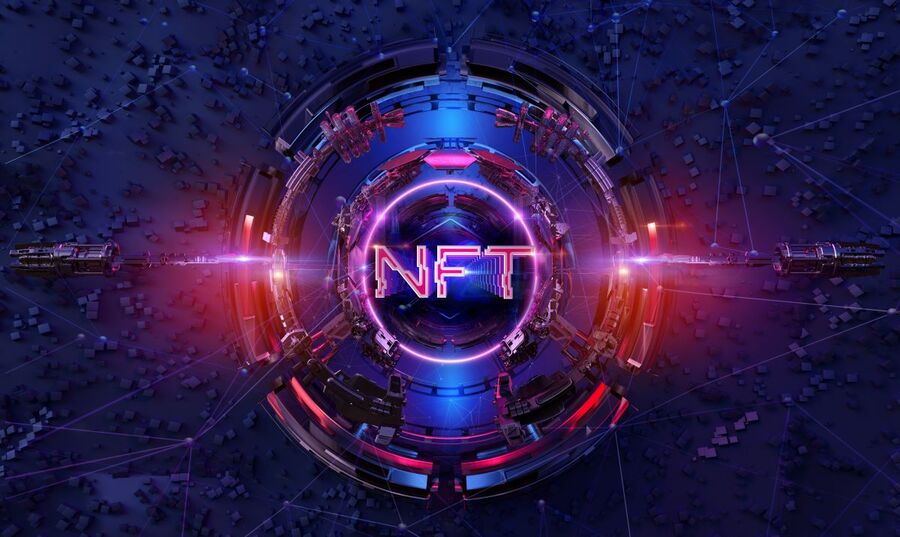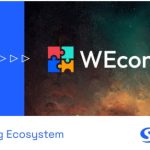
The Potential of NFTs for Gaming: Virtual Real Estate, In-Game Items, and More
- Cary
- February 27, 2023
- NFT
- In Game Items, NFT, NFTgame, NFTs, Nonfungibletokens, Player owned games, Virtual identities, Virtual real estate
- 0 Comments
Introduction:
Non-Fungible Tokens (NFTs) have been making headlines in the world of art and collectibles. However, the potential of NFTs extends far beyond these areas, and one of the most exciting possibilities is their use in gaming. In this article, we will explore how NFTs could revolutionize the gaming industry, with a focus on virtual real estate and in-game items.
Virtual Real Estate:
Virtual real estate refers to land or property in virtual worlds such as Second Life or Decentraland. With the advent of blockchain technology and NFTs, virtual real estate can now be bought, sold, and traded just like physical real estate. This has opened up a new world of possibilities for gaming, allowing players to own and develop their own virtual properties.
In Decentraland, for example, players can buy virtual land using MANA, the platform’s native cryptocurrency. Once they own land, they can build whatever they like on it, from virtual homes to shops and even entire cities. These virtual properties can then be rented out or sold to other players, creating a new market for virtual real estate.
In-Game Items:
In-game items are another area where NFTs could have a huge impact. Currently, most in-game items are owned and controlled by game developers, who can decide when and how they are obtained, as well as their value. With NFTs, however, players could own their in-game items outright, and even trade them with other players outside of the game.
This could lead to a new level of ownership and customization in gaming. Players could collect rare and unique items, or even create their own and sell them to other players. This could also open up new revenue streams for game developers, who could take a cut of each transaction.
Additional ways NFTs can be used in gaming:
In-Game Currency: NFTs can be used as a form of in-game currency, allowing players to purchase and trade virtual goods using cryptocurrency. This could provide a more secure and efficient way of handling in-game transactions.
Game Development: NFTs can be used as a fundraising tool for game development. Developers could sell NFTs to investors and fans, providing them with a stake in the game’s success.
eSports: NFTs can be used to represent digital assets used in eSports competitions. For example, a rare weapon NFT could be used as a prize in a tournament.
Fan Engagement: NFTs can be used to engage with fans and reward them for their loyalty. For example, a game developer could create limited-edition NFTs that are only available to players who have been with the game for a certain amount of time.
User-Generated Content: NFTs can be used to represent user-generated content within a game. For example, a player could create a custom skin or item and sell it as an NFT to other players.
Virtual Events: NFTs can be used to create unique virtual events within a game. For example, a game developer could create a limited-time event that rewards players with exclusive NFTs.
Other potential uses of NFTs in gaming:
Modding: NFTs can be used to represent custom mods created by players. For example, a player could create a custom map or game mode and sell it as an NFT to other players.
Player-Owned Marketplaces: NFTs can be used to create player-owned marketplaces within a game. This would allow players to sell and trade virtual goods with each other without the need for a centralized marketplace.
Virtual Identities: NFTs can be used to create virtual identities within a game. For example, a player could create a custom avatar and sell it as an NFT to other players.
Ownership Verification: NFTs can be used to verify ownership of virtual goods. This could be useful for preventing fraud and ensuring that players are buying authentic items.
Limited-Time Offers: NFTs can be used to create limited-time offers within a game. For example, a game developer could create a special holiday-themed item and sell it as an NFT for a limited time.
Charity Fundraising: NFTs can be used to raise funds for charity. For example, a game developer could create a special NFT and donate a portion of the proceeds to a charity of their choice.
Royalties for Creators: NFTs can be used to provide creators of virtual goods with a share of the profits when their items are resold. This could be particularly useful for games with a strong user-generated content community, as it would incentivize creators to continue producing high-quality content.
Provenance Tracking: NFTs can be used to track the provenance of virtual goods. This would allow players to see the entire history of an item, from its creation to its current owner. This could help prevent fraud and ensure that players are buying authentic items.
Virtual Advertising: NFTs can be used to create virtual advertising within a game. For example, a game developer could sell advertising space as an NFT, allowing brands to advertise directly to players.
User-Created Games: NFTs can be used to represent user-created games within a larger game world. This would allow players to create their own games and sell them as NFTs to other players.
Virtual Land Ownership: NFTs can be used to represent virtual land ownership. This could be particularly useful for games with a strong focus on building and construction, as it would allow players to own and customize their own virtual real estate.
Virtual Marketplaces: NFTs can be used to create virtual marketplaces within a game. This would allow players to buy and sell virtual goods with each other, creating a new economy within the game world.
Cross-Platform Integration: NFTs can be used to create cross-platform integration between different games. For example, a rare item NFT earned in one game could be used in another game that supports NFTs.
Player-Owned Games
NFTs also have the potential to enable player-owned games, where players have greater control over the development and distribution of games. With blockchain technology, players can create and distribute games without the need for a central authority or publisher. NFTs can be used to monetize these games, with players earning tokens for their contributions to the game’s development. This could create a more democratic and decentralized gaming industry, with players and developers working together to create and distribute games.
Challenges
Despite the potential benefits of NFTs for gaming, there are also challenges that need to be addressed. One challenge is the potential for fraud and scams. As with any new industry, there are bad actors who may try to take advantage of inexperienced buyers and sellers. Another challenge is the environmental impact of NFTs. The process of creating and selling NFTs requires significant energy consumption, which can contribute to carbon emissions and environmental damage.
Conclusion:
NFTs have the potential to revolutionize the gaming industry, creating new opportunities for ownership, customization, and revenue. Virtual real estate and in-game items are just two areas where NFTs could make a big impact, but the possibilities are endless. As blockchain technology and NFTs become more widespread and accessible, we are likely to see many more innovations in gaming and beyond.


